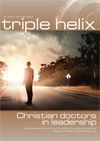My parents had little time for useless abstractions and philosophical reflection. My Dad was very much a surgeon. There were clear jobs to be done, things to be fixed. My Mum was a no-nonsense pragmatic Scot. As Mum once quellingly said, 'philosophy grows no cabbages'.
Perhaps you think likewise. Philosophy doesn't help me run my practice, deal with difficult patients and colleagues, keep up with the latest research, fill in forms. It grows no cabbages. True. But medicine is a rich and complex practice in which questions of what it is and what it is for have great bearing on what we do and how we do it.
Let me begin in a fairly obvious place: the current debate surrounding euthanasia, 'assisted dying' and end of life care and why it seems to be gaining prominence in public discourse in the Western world. There are a number of factors behind this, including changing political climates, shifts in social values, ageing (baby-boomer, choiceis- king) populations and late modern capitalism. These factors, and the specific arguments used for and against euthanasia, have been wellcanvassed elsewhere. So too have the divergent understandings of humanity that inform them: we are autonomous individuals, determiners of our own life story; we are made in God's image, endowed with unique dignity and called to be responsive to him, respectively. My interest here is to reflect on how these arguments imply or require a particular understanding of medicine. (1)
The pro-euthanasia position implies an understanding of medicine in which its primary aim is to enable people to choose the treatment that will alleviate their suffering (or enable them to pursue their life goals). It is a service that the community provides to ensure that suffering people are cared for and, where possible, find effective relief. Like other social services, it is made available to people who choose which of those services best fit their needs. Of course, it is a bit more complicated than, say, calling a plumber. This is because doctors are custodians of specialised knowledge and skills. Nonetheless, once the doctor informs someone of their options, it is the patient's (or client's) decision as to what they then do. Suffering and autonomy (human freedom) are what it's all about. And so, when a patient's suffering (of whatever kind) can no longer be alleviated, and they determine that they would like to end their life in order to end their suffering, there is nowhere for a doctor to go. Their job is to provide this last service.
The anti-euthanasia position presupposes a different view of medicine. Medicine, I would suggest, is best seen as a way in which human communities provide care for vulnerable people. At the heart of that care is a needy person, whose inherent frailty is exposed by their physical or psychological condition and whose capacity to act in the world is limited by it. So they come to someone they believe has the knowledge and skill to help them. Christians engage in this practice, I would suggest, because we are aware of our limited creaturely existence, of our fractured fallenness, and of the infinite care of our Triune God who sustains us and all creatures. God draws us to his desired end, and calls us to mirror that compassion and provide brief glimpses of that destiny in our care for our fellow humans. (2)
So medicine is more than a good way to make money and evangelise people. It is itself a sign of God's compassion, a foretaste of the coming kingdom. And that, in turn, makes medicine a deeply moral (and even theological) practice. Medicine is not (just) a service; nor is it (just) about the alleviation of suffering. Medicine is a profession, an inherently moral practice; and it exists in order to embody God's compassion and a properly functioning community's care for those whose vulnerability has been exposed by their ailment. (3) This view of medicine has implications for much more than the question of end of life care.
What role should bureaucratic control and a focus on 'patient outcomes' play in the practice of medicine? What does 'efficient' geriatric care look like? What kinds of 'health outcomes' can palliative care produce? We need to think a bit better about medicine if we even consider that 'outcomes' are the right yard-stick by which we should measure geriatric or palliative care. We should be concerned when the burdens of reporting make General Practice more a managerial than a medical practice. We need to reflect on the nature of medical practice and what it exists to do.
The role of 'conscientious objection' in medical practice raises similar questions. This emerges from the nature of medicine itself: at its heart is the exercise of knowledge and power by doctors for patients' benefit. As Christians we see the holding of power as ethically (and theologically) loaded, and the notion of beneficence as deeply moral. Again, however, this depends upon a particular philosophy of medicine, a vision of what it is and is for.
So, it is true. Philosophy grows no cabbages, treats no patients, fills out no forms. But philosophy and the theology with which it is necessarily connected, can help us figure out why we're practising medicine in the first place and how paperwork and patient care fit into what we're doing and our understanding of our calling as God's people in God's world.
Andrew Sloane is a doctor and senior lecturer in Old Testament and Christian Thought at Morling College, Sydney.
































